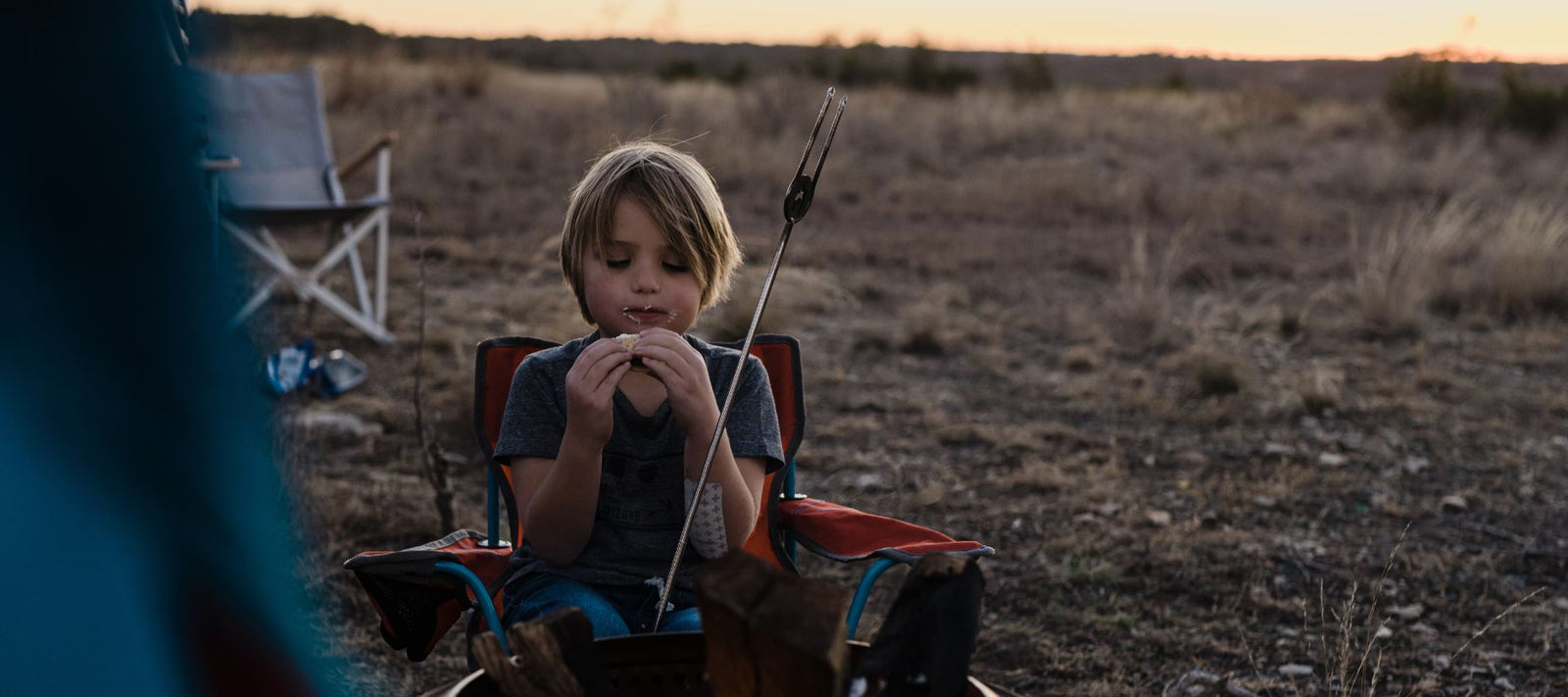Your Cart is Empty
June 05, 2023 3 min read
One of the best shared experiences with the family is making memories outside. Whether you’re camping, road tripping or even visiting grandma’s house - watching your kids enjoy their s’mores, get off their electronics, and bond with nature is a special occurrence.
However, we also recognize that bringing the kids along on a camping trip can definitely present some unique challenges… from bugs, nap schedules, and exhaustion from days in the sun – it can all add up to seem overwhelming at times. We believe that the right kid friendly camping gear and activities can help make the transition into the woods easier for the whole family.
Here’s a list of 7 tips and tricks to make your next family camping trip a success with the little ones!
Camping can be an intimidating experience for kids who aren’t used to sleeping comfortably outside. It’s important to bring a sense of familiarity for the family to fully relax away from home. We recommend bringing a little slice of home with you by using HEST Camping Mattresses, Pillows and Fitted Sheets on your next family camping trip. The temperature resilient memory foam, plush pillows, and soft sheets will provide a great night sleep for the whole family. Plus, our materials are machine washable - perfect for accidents along the way.
Involve the kids in setting up and taking down the camp site or packing up the car. More hands make light work, and if you make it a game ( ex: bins are goals, put items in the bin, get a goal/point) or a race, then they will enjoy the set up/take down, and learn a bit of responsibility along the way.
Do a dry run and practice camping at home. If you have the space, either in your yard or in your living room, set up the tent and sleeping pads/pillows/blankets/sleeping bags at home and have them sleep in the “fort” before you take them out into the wilderness. They will feel more comfortable in this foreign space and be more likely to fall asleep sooner out in the wild with the unique sounds of nature (that may be a little scary) if they have had some experience in the set up before.
Take the time to snuggle them and don’t rush putting them down for bed, or getting them up in the morning. The time you save getting back to the campfire with adults or getting the site picked up aren’t worth the mental trauma on your young ones. Kids have a difficult time adjusting to a new routine and as parents you cannot get frustrated with them for not following your routine or they will not want to go camping with you again if they feel that you will just get angry with them for not going to bed quickly enough or getting up immediately.
Those short moments of enjoying your child close to you, sharing a new experience out in the wilderness together, is something that they won’t forget. So if you make it hurried or stressful they will align camping (especially sleeping while camping) with those feelings. If you make it special, that is what they will remember and look forward to the next time. Make those book-end moments of the day relaxing, loving, and free of time constraints. It pays dividends.
It’s simple, bring bikes (depending on where you are camping of course). If you plan to camp at established campsites like a national park or state park they most likely have good roads around the camp grounds. This is a perfect place to let your kids bike around and be fairly safe from cars. Also there is a good chance that there might be other kids doing the same thing and they usually naturally play together.
Bring their own headlights! Not only is it a cheap and indestructible camping gear that they can call their own, it's a great way for the kids to enjoy the dark. They can play flashlight tag or other games in the dark to keep them entertained.
Pack extra clothing and essentials. Kids can get messy or have accidents, so be prepared by packing extra clothing, including layers for varying weather conditions, and the HEST Fitted Sheets and Pillowcases for spills. Don't forget essentials like sunscreen, insect repellent, and first aid supplies tailored to their needs.
